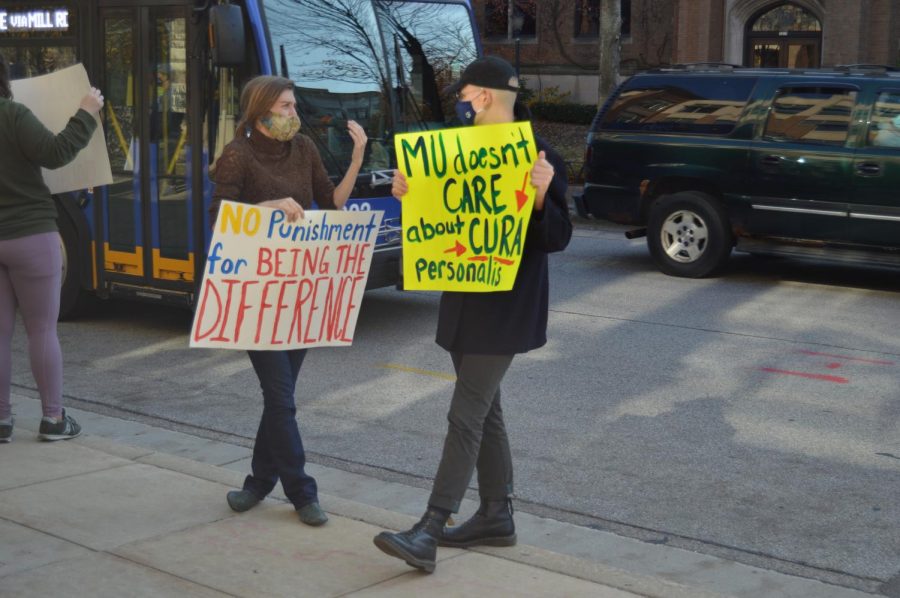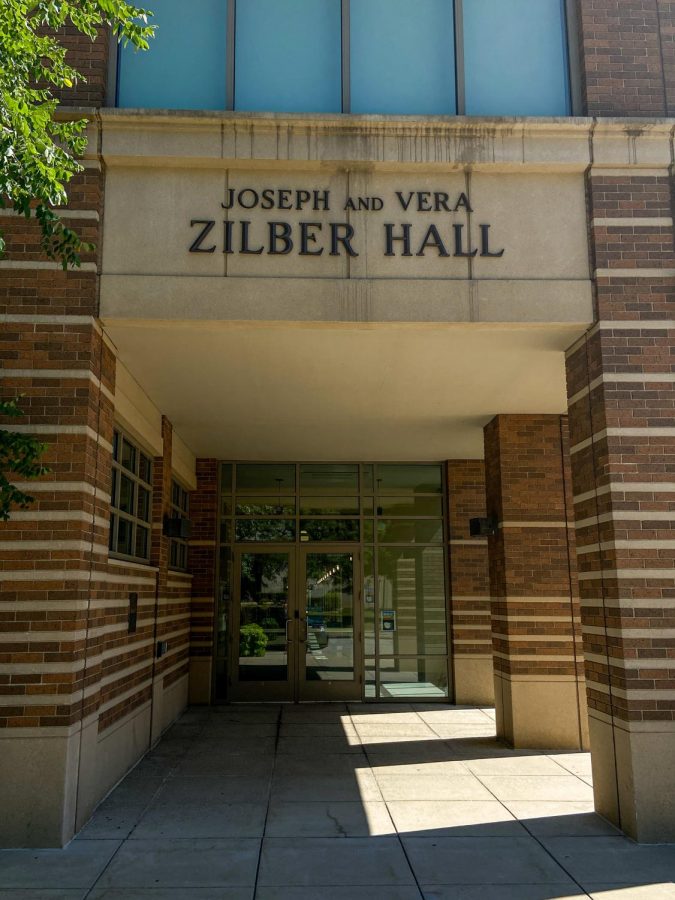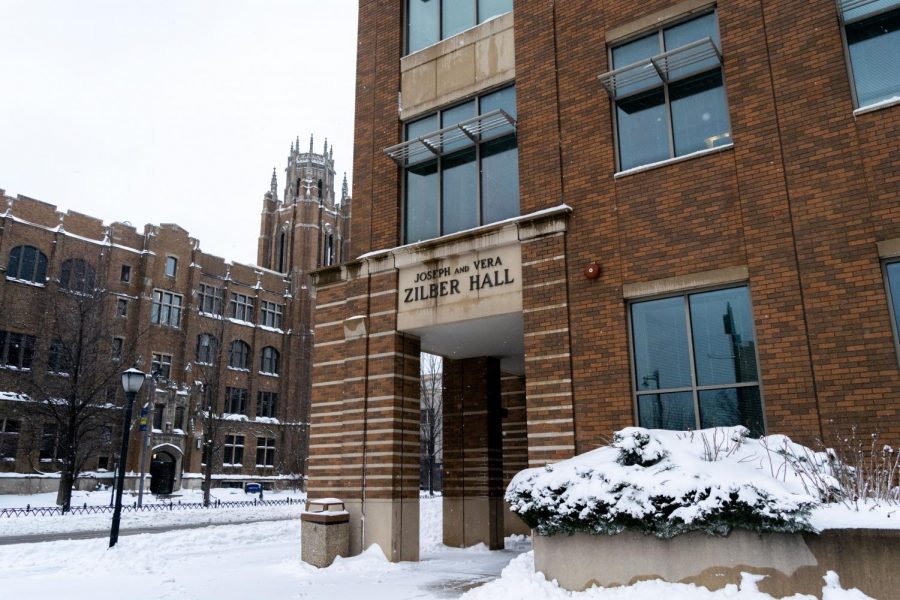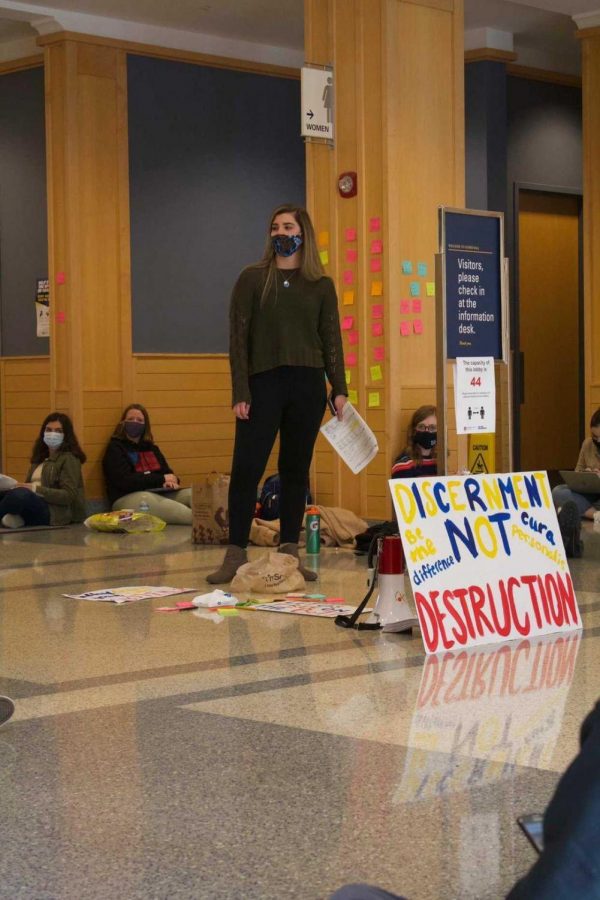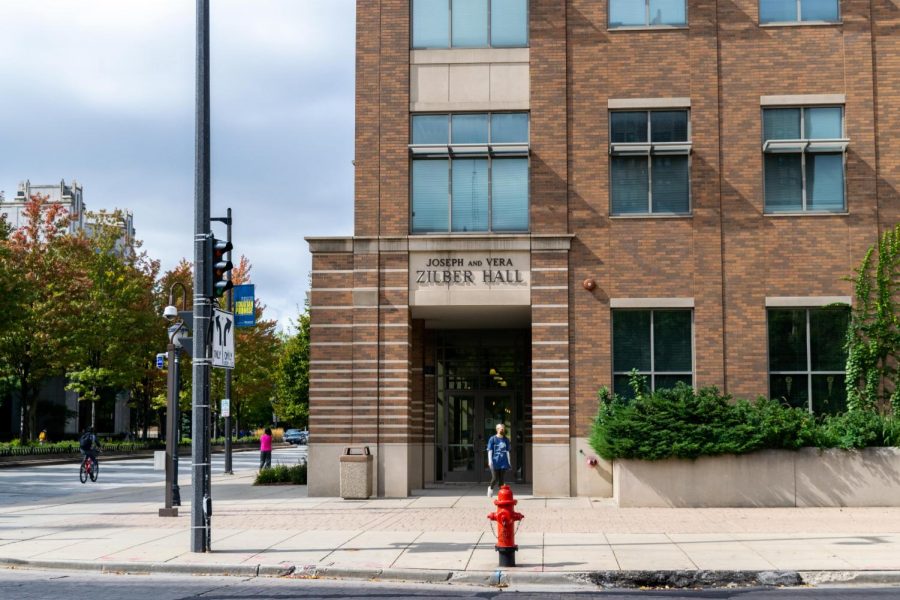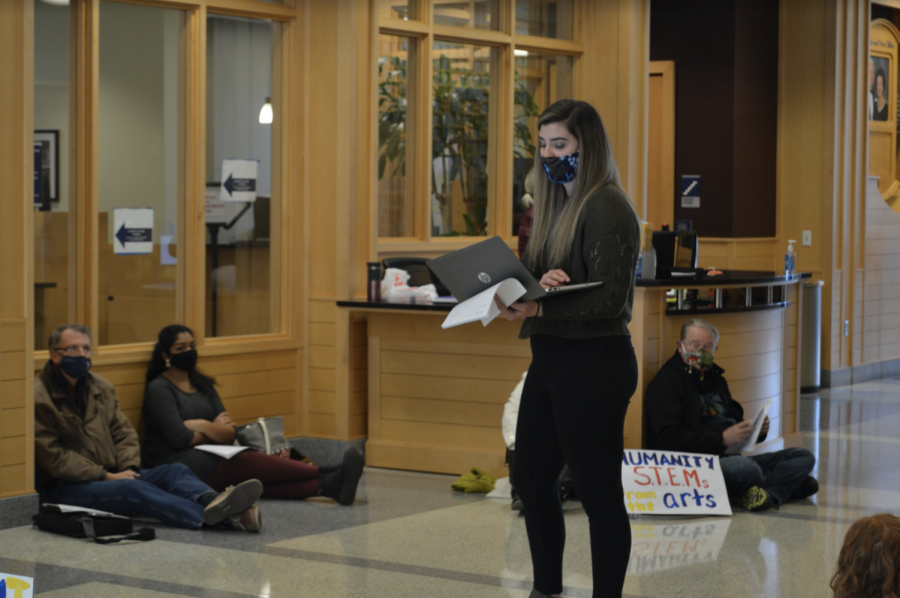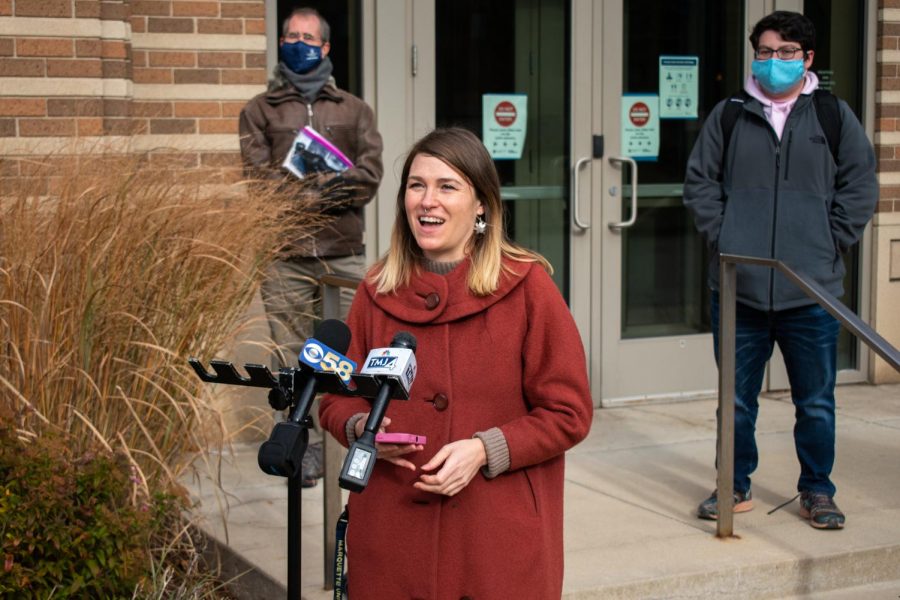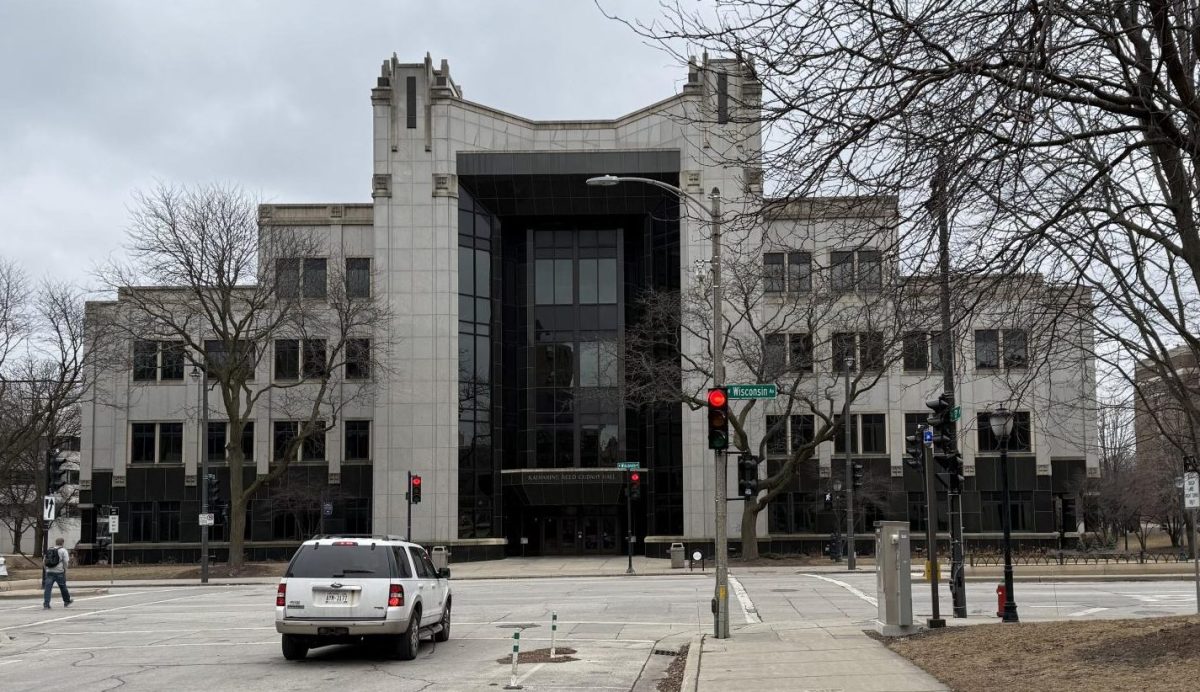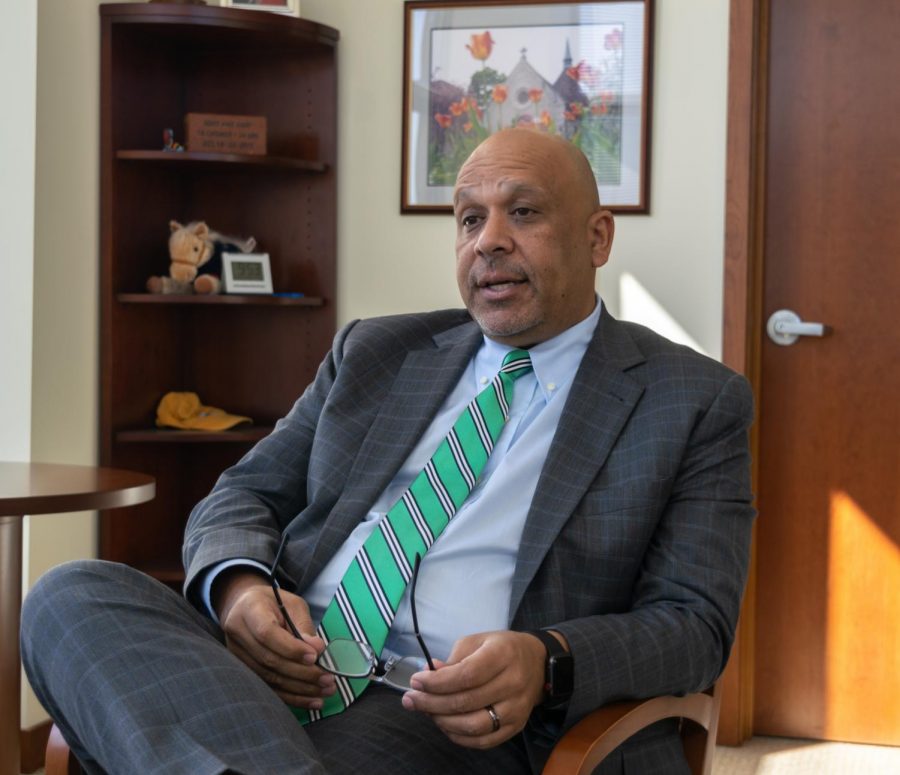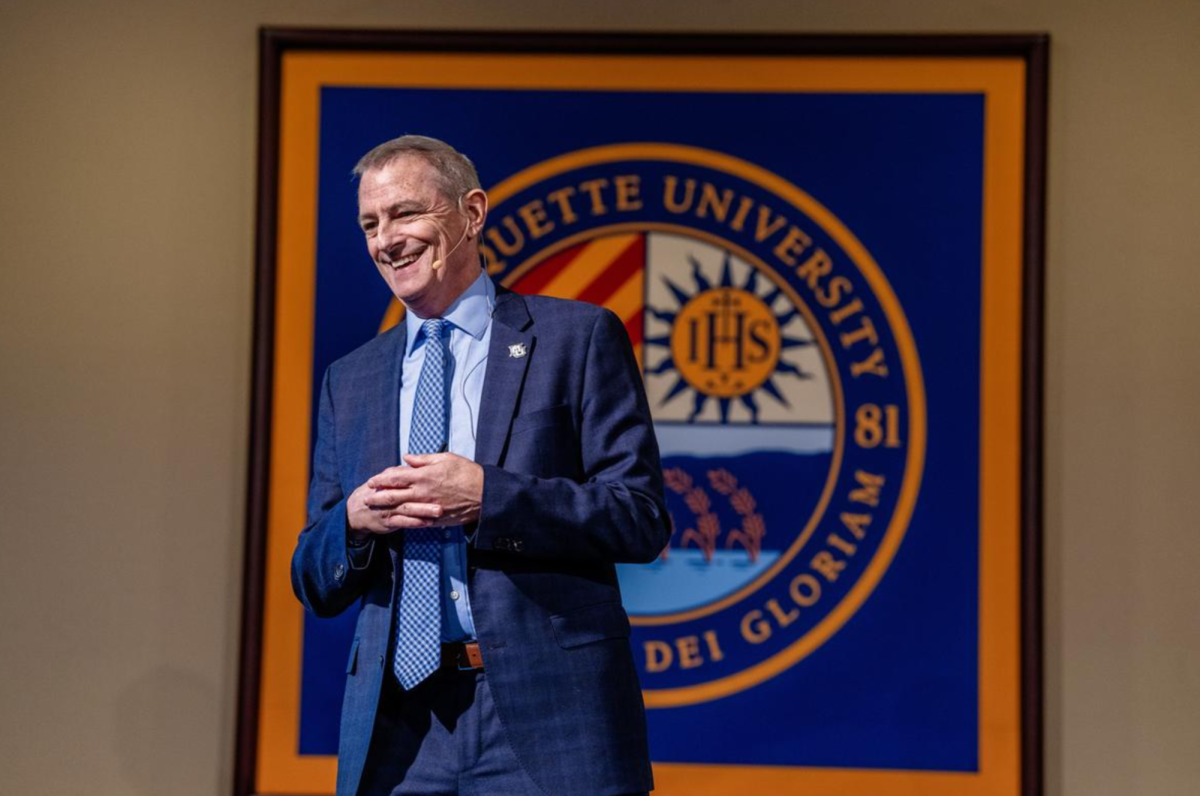Marquette University released its budget for the 2022 fiscal year Dec. 7, 2020. Since the release, many community groups and faculty groups have expressed their views on the budget.
“There are student groups on campus that are angry about this. There are faculty groups that are angry about this, because it is going to affect everything at the university, 225 terminations,” Chris Gooding, a visiting professor of theology and member of the Marquette Academic Workers Union, said.
The budget details a plan to eliminate the positions of 225 faculty and staff members by the end of the fiscal year. However, the budget also shows the university planning to operate on a $12.1 million operating surplus, which amounts to about a 3% budget increase.
Throughout last semester many students and faculty protested the potential of faculty layoffs. Brooke McArdle, recent graduate of the College of Arts & Sciences, was a primary student leader in these protests.
“Clearly, the university makes choices when they decide on a budget. This budget reflects their own biases and intentions to move Marquette away from its core values,” McArdle said. “This budget demonstrates that the university is not as fiscally unsound as administration has previously insisted.”
Gooding agreed that the operating surplus of the budget indicates that layoffs aren’t monetarily necessary. In addition to the $12 million operating surplus, the university has an $8 million contingency fund that will remain untapped through the fiscal year.
“Running 20 million over budget and treating this like an extinction event and laying off 225 people in the midst of it, that was the thing that struck me the most about it,” Gooding said.
For Gerry Canavan, the secretary and treasurer of Marquette’s chapter of American Association of University Professors and associate professor of English, the operating surplus isn’t the issue that’s raising concerns over the budget.
“I don’t think this is a bad idea in the abstract; Marquette has had a tendency to spend every dollar it takes in and thinking a bit about reigning in spending seems like a wise move, especially when COVID-19 has provided such a vivid demonstration of the sorts of shocks that are possibly in the industry,” Canavan said in an email.
While the operating surplus may not be a bad idea in Canavan’s mind, he believes that now is not the right time.
“This is the wrong year to begin this program, for reasons that are obvious — at a time when Marquette is reeling from such a massive disruption and talking about laying off large numbers of loyal faculty and staff into a pandemic and severe economic recession, we should not be making deeper cuts than we absolutely need to in the name of a rainy day fund,” Canavan said in an email.
The faculty layoffs began Jan. 21, when the university laid off 39 employees. In response, Our Marquette, a group of tenure and tenure-track faculty, released a statement condemning the layoffs.
“The budget names an aggressive headcount reduction target without details or even guiding principles; that’s all to be named later, ostensibly as a result of the ongoing economic planning process we’ve been enduring this academic year,” Canavan said in an email.
As the secretary/treasurer of Marquette’s chapter of AAUP, Canavan detailed the three things the organization believes the budget hasn’t had enough time to properly address.
First, they want the university to spend more time looking for other opportunities for revenue growth and restructuring. Secondly, they want a better idea of what higher education look like in a post-COVID world.. And third, the University needs to exercise every option possible to avoid eliminating faculty positions.
As of Jan. 25, the university has only laid off 39 employees. If the budget continues to go according to plan, 186 more employees will be laid off by the end of fiscal year 22.
“I worry that we are making large, permanent changes too rashly, and without the proper level of long-term planning,” said Canavan.
This story was written by Megan Woolard. She can be reached at megan.woolard@marquette.edu.


